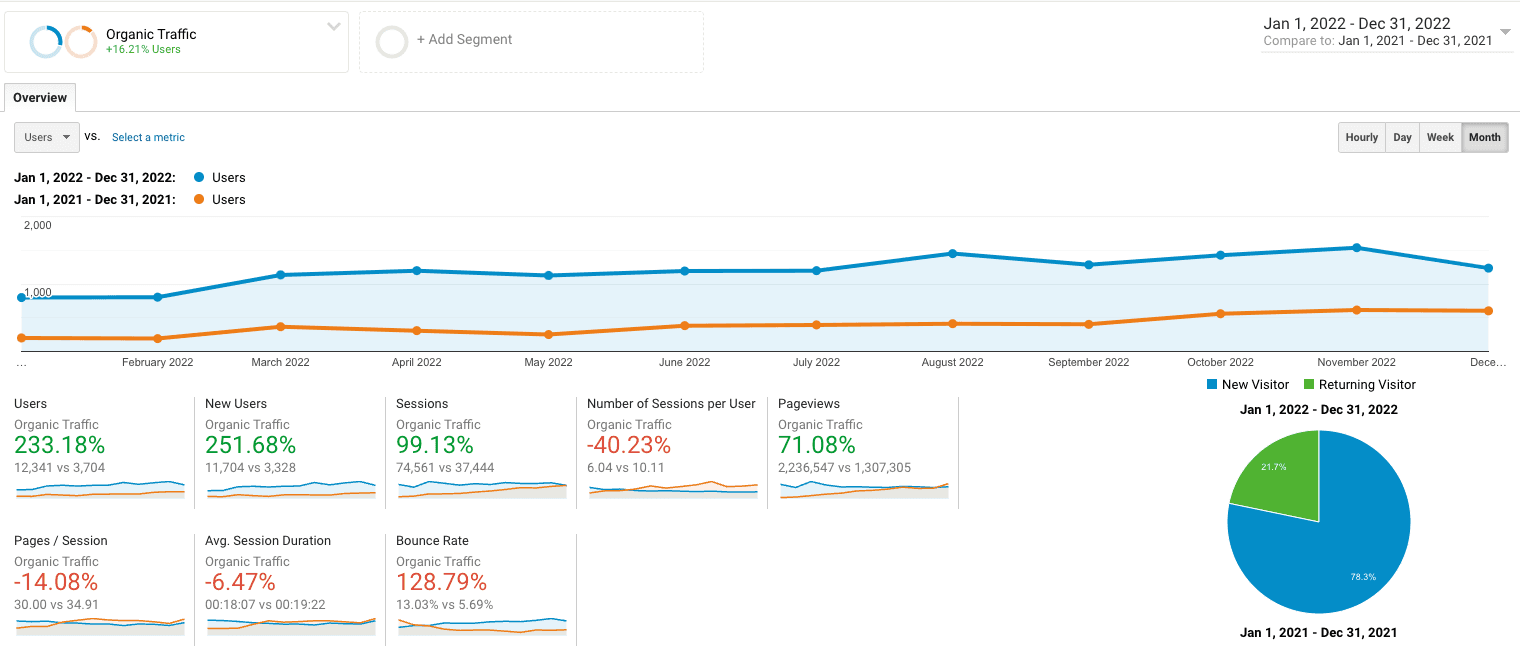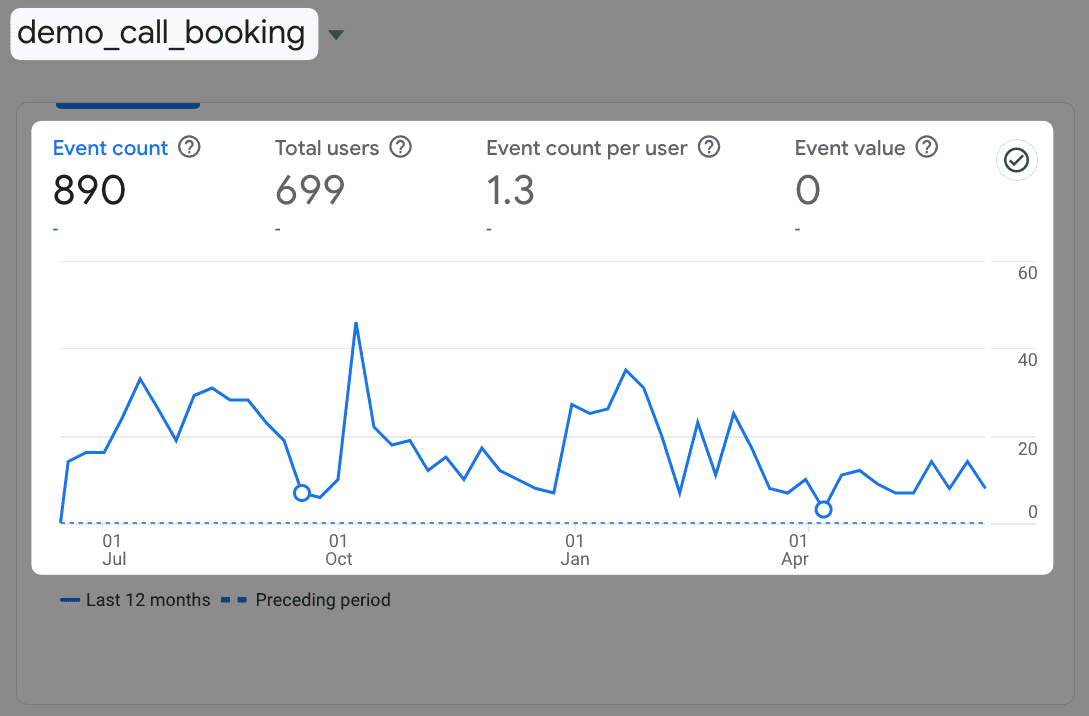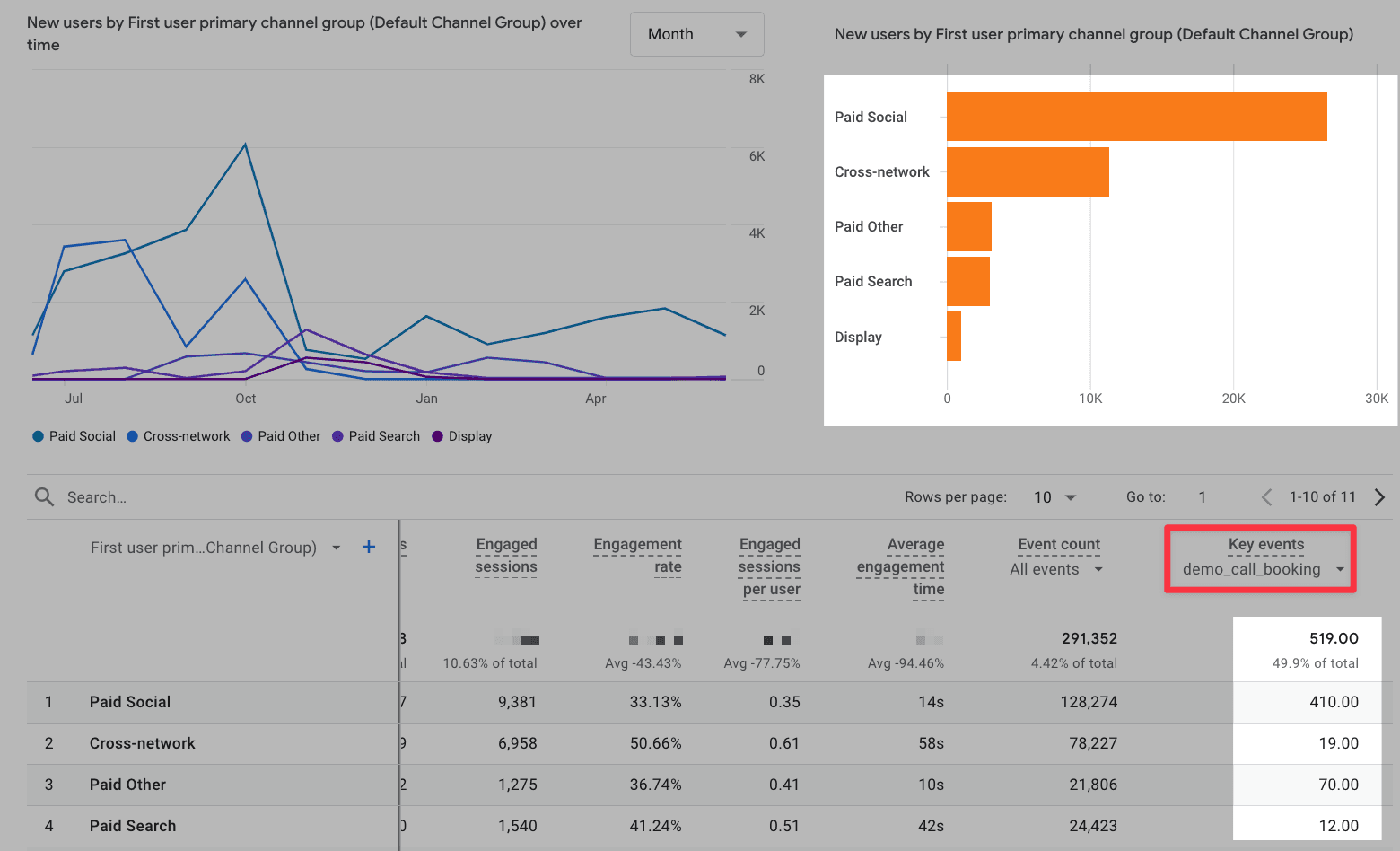Case study: 890 Scheduled demo calls in 12 months
And that's not all, +1375.70% Increase in organic traffic after 12 months and constant flow of bookings (scheduled calls) from paid ads and cold emailing campaigns to keep their pipeline full.

Saif Abbas
9
min read
Client Overview
Industry: SaaS
Products/Services: Design subscription
Target Audience: B2B/B2C
Disclaimer: This project started in January 2022 and still ongoing (most of our clients been with us for years).
Results summary
1375.70% increase in organic traffic during the first year of engagement
890 scheduled calls in 12 months using mixed tactics
90% of all prime keywords pushed to top 3 ranks in 3 countries (Malaysia, Singapore, Australia).
No show reduced by 95%
50% of marketing and sales tasks automated
Objectives
Primary Goals: Constant flow of bookings (scheduled calls) from omni-channel marketing.
Secondary Goals:
Achieve page 1 ranking for all primary keywords in 3 markets.
Reduce no-shows to less than 5%.
Automate 60% of the marketing and sales tasks.
Strategy and Implementation
A new SaaS startup from Malaysia asked us for help to grow quickly. The founders were mostly focused on meeting a market need, so they didn't pay much attention to marketing and sales. Even though they had spent a lot of time on it, not many people knew about their business, and most of their sales were from referrals.
Our strategy was straightforward yet effective:
Initiate organic growth within 3 months using content and links.
Achieve top 3 ranks for all main keywords related to design outsourcing in their primary location, Malaysia.
Establish a system for cold email campaigns to boost ROI.
Automate tasks where possible, such as nurturing campaigns, lead scoring, reducing no-shows, managing reputation, scheduling appointments, and sales pipeline.
Regularly run paid ad campaigns with a focus on social media.
Simplify the website, keeping one conversion point (schedule a demo) and internally linking pages to that point.
This diverse marketing plan ensured the client consistently received booking calls.
SEO Strategy
The client's initial website was well-built with effective sales messages.
We conducted an audit to evaluate its technical SEO health and found issues with page speed, mobile user experience, and missing pages and schema maps.
These were scheduled to be fixed within three weeks.
Afterward, our focus shifted to maintaining high-quality content and links as well as regular site performance monitoring.
Content Strategy
The only path to growth is through content. Without publishing quality content, none of our achievements would be possible.
We set a simple goal of producing four blog posts a month, at the highest possible quality, addressing specific inquiries or trends, and keeping them localized.
Since the client is based in Malaysia with future plans to expand into countries close to the base time zone, we know that localization will give us an edge in ranking.
We picked topics that aligned with the trend and matched search inquiries. Once we identified all the keywords we wanted to target, we mapped the content and planned a six-month calendar.
Website Revamp and UX/UI Improvements
The website's condition was good when we started, but it needed minor tweaking.
There were multiple conversion points that distracted users from performing the desired action. We fixed this by keeping only one conversion point (schedule a demo).
We added a smart exit-intent pop-up that matches the intent of the page (if it's a service page, the pop-up will be 'schedule demo', if it's a blog content, it's an offer to download or subscribe).
A blog was absent. We added a blog designed to engage and route traffic to the conversion point.
The data tracking and collection of user behavior was a mess. We unified all data points into a cleaner GA report.
Technical SEO
The client's website has only a few pages, so technical SEO is only an issue with larger sites. We identified a few issues that were easy to fix within two to three weeks and acted quickly to resolve them.
Link Building
Through my decade of experience in SEO, I have not encountered a single project that achieved good results without link building.
We have tested this many times. If we delay link acquisition campaigns, the results are either very slow or not competitive enough to rank.
Unless we target easy, non-competitive keywords, which simply do not generate leads.
For this client, we started link building from day one.
First, we acquired every directory link that was relevant and from Southeast Asia.
Then, we moved on to authority links to power the domain page, where we targeted high domain authority links. This lasted for a few months.
After that, we moved to building targeted links (for the blog and inner pages).
All of this while maintaining healthy internal links across the pages whenever we created new content.
We always prioritize transparency when reporting on link acquisition campaigns, and our reports look like this:
(Screenshot - link trackers)
The tactics we used to acquire these links are a mix of outreach, ABC links, and guest posts on sites we have previously worked with that have good metrics.
Our link target is 5-7 per month (due to limited resources), but it still worked fine.
Localization
Localization was simple. We first conducted thorough research to understand how the audience used search to find relevant information, and then personalized the content for them.
We had 3 targets:
Malaysia
Singapore
Australia
Leads Management
When we started, lead management was not on the radar; we didn't even have leads yet to worry about.
This issue arose when we started having too many leads for one salesperson to handle (it was the co-founder dealing with that).
The influx of leads (scheduled demo calls) put tremendous pressure on the co-founder's time. Handling 8-14 meetings a day was not on their agenda.
To address this, we knew we needed a system in place.
We used Calendly automation to reduce no-shows, as that was an issue taking precious time from the founders.
After that, we set up ActiveCampaign for them to:
Nurture leads
Send newsletters
There are millions of things to do when it comes to automation, but only a few matter.
If you're interested in learning more about how we do automation, we built a customized all-in-one platform based on the GHL platform that we tailored to our clients as part of our system access solution.
You can learn more about it here.
All our clients get access to this as part of the package, and for those who can afford it, we customize a system based on their stacks (ActiveCampaign, Keep, or Hubspot).
Results
From the SEO strategy only
Organic Sessions
2020: 979 (Incify started in Q3 2020). The site was one year old.
2021: 37,444 (3724.72% increase)
2022: 74,561 (99.13% increase)
2023: 95,307 (27.82% increase)
Organic Users
2020: 251
2021: 3,704 (1375.70% increase)
2022: 12,341 (233.18% increase)
2023: 15,422 (24.97% increase)


Based on the latest data (July 2023 to June 2024), We secured 890 booking calls for them in 12 months through multi-channel marketing. Of these, 30% came from organic search, 50% from paid ads, and 29.18% from cold emailing campaigns.

We constantly launched performance campaigns using targeted funnels and smart ads, we tried everything over the past years, the channel with the highest ROAS is meta platforms.

Conclusion and Insights
Summary:
1375.70% increase in organic users in first year
890 booked calls in 12 months (30% organic, 50% paid, 20% cold email)
90% of prime keywords in top 3 ranks in target countries
No-shows reduced by 95%
50% of marketing and sales tasks automated
Lessons Learned: Mix of SEO, content, website optimization, link building, localization, and automation drove significant growth in traffic and booked calls for SaaS client. Continued focus on these strategies planned for future growth.